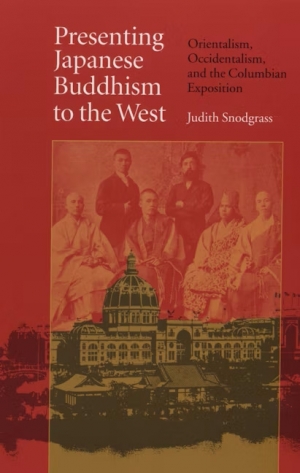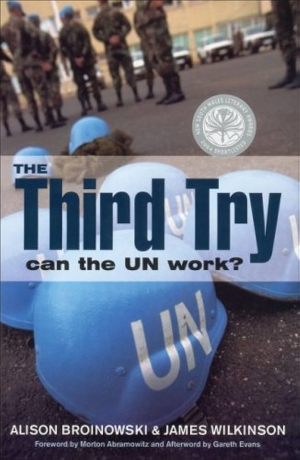Alison Broinowski
Alison Broinowski reviews ‘Figurehead’ by Patrick Allington
What we might call ‘ordinary Australians’ produced a stream of novels about Asian countries in the 1970s and 1980s, but this is now a mere trickle. Some of the flow may have been dammed by the effect of market forces on publishers; some of it may have been diverted to Middle Eastern channels; some may have drained into the pools of Asia-enthusiasm that stagnated during the Howard years; and some may have dried up in the face of Asian diaspora fiction of the 1990s. Among the few Anglo-Saxon Australians who kept writing novels about Asia, several have turned to narratives set in a historical comfort zone, where they may still have a chance of competing with Asian Australians like Brian Castro, Teo Hsu-ming and Michelle de Kretser – although they too write of the past – or with Nam Le, Alice Pung and Aravind Adiga, who concentrate on the here and now.
... (read more)Alison Broinowski reviews 'The Sweet and Simple Kind: A novel Of Sri Lanka' by Yasmine Gooneratne
The Gooneratnes’ mountain bungalow, overlooking rippling tea plantations, is called Pemberley, after Mr Darcy’s mansion. A wall plaque commemorates Elizabeth Bennet’s description of it. In the style of a modern Jane Austen, Yasmine Gooneratne takes up the enduring and universal question of who will marry whom, as Vikram Seth did in his mega-novel A Suitable Boy (1994), and at similarly entertaining length. The topic is Bollywood’s favourite too, but before writing The Sweet and Simple Kind, Professor Gooneratne, a specialist in eighteenth-century fiction and poetry, had not seen the film adaptation of Pride and Prejudice.
... (read more)Alison Broinowski reviews ‘A Most Immoral Woman’ by Linda Jaivin
Rarely does an image on a novel’s cover appear exactly as you, the reader, imagine the character to look. But Mae Ruth Perkins, on the elegant scarlet cover of Linda Jaivin’s new novel, definitely does. Bordello eyes, boudoir lips and all: the face in an early 1900s photograph is Mae’s own. The jewellery, faintly visible, is hers too, just as Jaivin describes it: ‘He helped her tie a black ribbon with a silver horseshoe charm around her neck, the open part facing upwards … She asked him to fasten a delicate platinum chain with a vertical triplet of gold hearts around her neck as well.’
... (read more)In the beginning, says a much-repeated joke, was The Plan. Deemed excellent, at first, it passed through many reinterpretations at successive levels of bureaucracy, and ended up being derided as a crock of shit. Britain’s plan for reconstructing Iraq in 2003 might have met the same fate, only there wasn’t one. Don’t laugh: Australia had no plan either, excellent or crock.
... (read more)Alison Broinowski reviews 'Roma the First: A biography of Dame Roma Mitchell' by Susan Magarey and Kerry Round
Roma Mitchell came first in nearly everything. Not only at school and university, but in becoming Australia’s first female OC, Supreme Court judge, Boyer Lecturer, university chancellor and state governor. But she had no inside track to success. Her father was killed in World War I, her mother survived on his pension and the generosity of friends, and Roma and her older sister were taught by the Sisters of Mercy for nothing.
... (read more)Michael Wesley reviews 'Allied and Addicted' by Alison Broinowski
Whoever wins the federal election later this year, it is likely that at some stage in 2008 we will be looking back and post-mortemising the Howard government. One strand in the reviews will surely be the Howard government’s impact on the quality of public debate in this country. Whether it has been a contributor to Howard’s long ascendancy (and I think it has), this government’s ability to goad large numbers of academics and commentators into unbalanced and increasingly hysterical denunciations of nearly all aspects of its operations is unprecedented in Australian political history.
... (read more)Alison Broinowski reviews 'Kofi Annan: A man of peace in a world of war' by Stanley Meisler
The United Nations’ eighth secretary-general, Ban Ki-Moon, has just taken over what has been called the world’s worst job. But it is one that attracts fierce, devious and polite competition. Why would anyone seek, for less than $400,000 a year, to be the chief administrative officer of a non-government that cannot govern, a non-corporation that cannot borrow or invest? The UN’s total budget is about the same as the New York City school system, and the secretary-general has to beg 192 national stakeholders for funds even to carry out what they instruct him to do. Who would want to be answerable, as well, to a fifteen-member board, five of whose members use their permanency to frustrate others and advance their own interests, rather than those of the organisation?
... (read more)The timing of Peter Manning’s book, in which he seeks more Australian empathy with Muslims, was exquisite. The mufti of Australia in September urged the opposite, telling his flock that Jews and Christians were ‘the most evil of God’s creation on the face of the earth’. He also had colourful things to say about women being responsible if men turn to crime, or commit rape or adultery. Of course, the media overlooked Taj Din al-Hilaly’s interesting view that the axis of evil is Jewish and Christian. They also ignored his peculiar take on criminology. As usual, sex was what sold, giving the government a useful diversion from its floundering on climate change and the quagmire in Iraq.
... (read more)Alison Broinowski reviews ‘Presenting Japanese Buddhism to the West: Orientalism, Occidentalism and the Columbian Exposition’ by Judith Snodgrass
Whether you agreed with it or not – and many didn’t – Samuel Huntington’s prediction of a coming Clash of Civilisations (1993) was one of the most engrossing arguments of the late twentieth century. He not only foresaw Western civilisation confronting a joint Confucian–Islamic challenge, in 1996 he also anticipated an attack on the US by young, middle-class Muslims.
... (read more)Daniel Flitton reviews ‘The Third Try’ by Alison Broinowski and James Wilkinson, ‘Australian and US Military Cooperation’ by Christopher Hubbard, ‘Dealing With America’ by John Langmore
Reflecting on the sixty-year history of the United Nations, it seems obvious that this is an organisation created through the slow and tortured process of natural evolution rather than the product of careful, intelligent design.
Years ago, back when the UN had barely escaped its adolescence, the Nobel laureate and eminent diplomat Ralph Bunche observed that ‘the United Nations is a young organisation in the process of developing in response to challenges of all kinds’. He referred to institutional enlargement that typically continued as the global agenda grew. Agencies soon developed to coordinate the work of other agencies. Consequently, the modern UN became a haphazard creature, made up of a bewildering mix of political organs. Each part is intended to serve a different purpose, whether maintaining international security, advancing respect for fundamental human rights, or promoting economic development. And each component comes labelled with an almost impossible array of scientific-sounding designations (EcoSoc, for instance, UNEP, UNESCO, UNICEF and plenty more to make up page after page of abbreviation lists).
... (read more)









